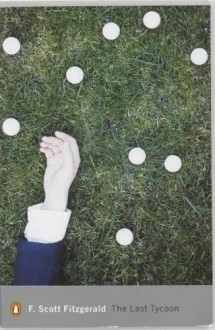Unfinished at the time of his death, F. Scott Fitzgerald's "The Last Tycoon" is a story of doomed love set against the extravagance of America's booming film industry. This "Penguin Modern Classics" edition is edited with an introduction by Edmund Wilson. The studio lot looks like 'thirty acres...
show more
Unfinished at the time of his death, F. Scott Fitzgerald's "The Last Tycoon" is a story of doomed love set against the extravagance of America's booming film industry. This "Penguin Modern Classics" edition is edited with an introduction by Edmund Wilson. The studio lot looks like 'thirty acres of fairyland' the night that a mysterious woman stands and smiles at Monroe Stahr, the last of the great Hollywood princes. Enchanted by one another, they begin a passionate but hopeless love affair, starting with a fast-moving seduction as slick as a scene from one of Stahr's pictures. The romance unfolds, frame by frame, watched by Cecilia, a thoroughly modern girl who has taken her lessons in sentiment and cynicism from all the movies she has seen. Her buoyant humour and satirical eye perfectly complement Fitzgerald's panorama of Hollywood at its most lavish and bewitching. F. Scott Fitzgerald (1896-1940) has acquired a mythical status in American literary history, and his masterwork "The Great Gatsby" is considered by many to be the 'great American novel'. In 1920 he married Zelda Sayre, dubbed 'the first American Flapper', and their traumatic marriage and Zelda's gradual descent into insanity became the leading influence on his writing. As well as many short stories, Fitzgerald wrote five novels "This Side of Paradise", "The Great Gatsby", "The Beautiful and the Damned", "Tender is the Night" and, incomplete at the time of his death, "The Last Tycoon". After his death "The New York Times" said of him that 'in fact and in the literary sense he created a "generation"'. If you enjoyed "The Last Tycoon", you might enjoy Fitzgerald's "The Beautiful and the Damned", also available in "Penguin Classics". "Wonderful...a novel about Hollywood, written from the inside". (Helen Dunmore, "Sunday Times").
show less






 13 years ago
13 years ago